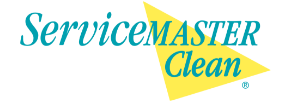
Degrees of Clean: When to Use Sanitizers or Disinfectants in Your Healthcare Facility
Healthcare facilities require much higher standards of clean than other commercial facilities to ensure a safe and healthy environment for patients and providers. Without proper cleaning techniques, potentially illness-causing pathogens and bacteria can collect on surfaces or remain in the air. It’s crucial for any healthcare facility to have a firm understanding of the differences between sanitization and disinfection, as well as the intended functions for specific types of disinfectants.
The Centers for Disease Control and Prevention (CDC) has outlined their expectations for disinfection and sanitation on a range of spaces and circumstances that occur in the healthcare environment. According to these guidelines, not every room requires sterilization, so it’s important that your staff knows the level of cleaning needed for every tool, surface or device. ServiceMaster Elite Cleaning Services offers expertly trained janitorial staff that know the expected healthcare cleaning protocols across several authority institutions including AORN, OSHA, CDC, The Joint Commission, HIPPA and AAAHC.
What is the Difference Between Sanitizing and Disinfecting?
Sanitization is defined as the reduction of bacteria to safe levels as set by public health standards. The purpose is to decrease the risk of infection; however, it does not always kill viruses. Sanitizing surfaces kills 99.999% of specific test bacteria, yet sanitizing alone cannot eliminate all known viruses.
Disinfection is defined as the elimination of pathogens and disease-causing organisms, other than bacterial spores. Disinfection is a much stronger method of cleaning than sanitization and comes in varying degrees. Low-level disinfectant can kill almost all vegetative bacteria and some viruses and fungi. It cannot eradicate bacterial spores. High-level disinfectant and get rid of all microorganisms other than a small number of known bacterial spores. Hospital-grade disinfectant, generally used in hospital and other medical facilities, can destroy many known infections and disease-causing bacteria. Professional healthcare janitors use a liquid chemical agent or wet pasteurization process when applying disinfectant.
What are the Differences in Disinfectants?
There are almost 1,200 registered hospital-grade disinfectants. When considering which disinfectant to use for your medical facility, you’ll want to think about the current health and safety standards as well as the nature and degree of contamination. There are two major categories of disinfectant to know: quaternary and sporicidal.
Quaternary disinfectant contains ammonium compounds that are often used in detergents or other chemical disinfectants to eliminate harmful pathogens like fungi, amoebas, mold, a variety of microbes and some strains of viruses. They are ideal for infection-control when used in dentist or physician’s offices, clinics, waiting rooms, and hard nonporous surfaces. Quaternary disinfectants are often a top choice for many healthcare facilities because every cleaning solution is approved by the Environmental Protection Agency (EPA). However, due to their popular use, bacterial resistance to quats has increased in recent years. Because of this, it’s important for any healthcare facility to remain informed and in compliance with updates in the efficacy of certain cleaning products.
Sporicidal disinfectant is a powerful disinfectant that works to eliminate endospores and endospore-forming bacteria that can lead to the rapid and dangerous spread of infection. These are best used for terminal cleaning in high risk environments like surgical centers or operating rooms. It is imperative in these types of environments for cleaning crews to be extremely cautious and stick to proper cleaning techniques to prevent cross-contamination. Always refer to the product manufacturer’s instructions when using sporicidal disinfectant products.
ServiceMaster Elite Cleaning Services offers the highest quality in healthcare cleaning services in Southern Louisiana. You can rest assured that our team knows the latest in health code standard requirements and can provide up to date and professional service. Contact us online or give us a call at (800) 932 – 9940.

